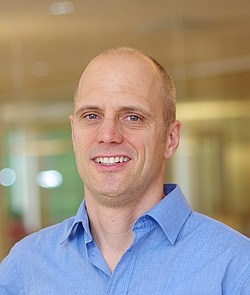Digital Twins of the Built Environment

Dr Ruchi Choudhary
Dr Ruchi Choudhary is Reader of Architectural Engineering in the Engineering Department at University of Cambridge. She specializes in simulation methods for predicting energy demand of the built environment. She is leading the research group on Digital Twins of Built Environment at the Alan Turing Institute (2018-2021). At Cambridge, she leads the multi-disciplinary Energy Efficient Cities Initiative, initially funded by a Science & Innovation award at Cambridge. She is also co-Investigator of the Cambridge Centre for Smart Infrastructure & Construction. Her research spans simulation-based methodologies for energy management of buildings; uncertainty quantification in building simulation models; and multi-disciplinary interactions influencing energy use in cities. She is leading projects on modelling underground heat and city-scale geothermal systems, urban farming, and end-use energy demand modelling. In 2019 she became fellow of the International Building Performance & Simulation Association (IBPSA). She is elected chair of IBPSA-England since 2018. She is on the editorial board of J. of Building Performance Simulation, BSER&T the CIBSE Journal, Sustainable Cities and Society, and ICE J. of Smart Infrastructure & Construction.
The role of R&D within the digital transformation of the building industry

Dr.-Ing. Steffen Robbi
The digital transformation of the building sector must contribute to a significant increase in resource, energy and cost efficiency. Driven by this aim, Dr.-Ing. Steffen Robbi co-founded the innovation lab Digital Findet Stadt, platform for digital innovations in the construction and real estate industry. Previously, he was responsible for Digital Building Technologies as Business Manager and Senior Engineer at the AIT Austrian Institute of Technology. His first experiences in shaping an innovative business model that achieves rapid market growth with sustainable technologies, was at the German start-up and now internationally renowned company Cloud&Heat Technologies.

Dr. Sven Moosberger
Dr. Sven Moosberger is co-founder and co-CEO of EQUA Solutions AG Switzerland. In this role, he has accompanied building performance simulation in the German-speaking world over the past ten years on its way from research to both education and planning practice. His experience ranges from extensive validation studies, model development for product design, development and implementation of training courses to project management of real construction projects in the fileds of both building pyhsics, HVAC engineering and building automation. Today he works intensively on the application of building simulators during operation.

